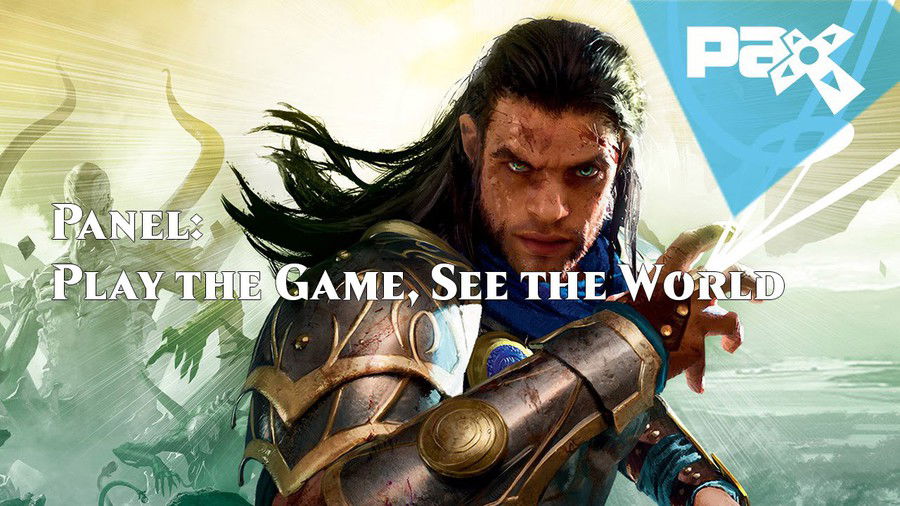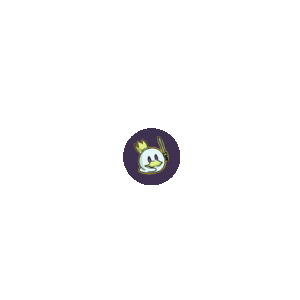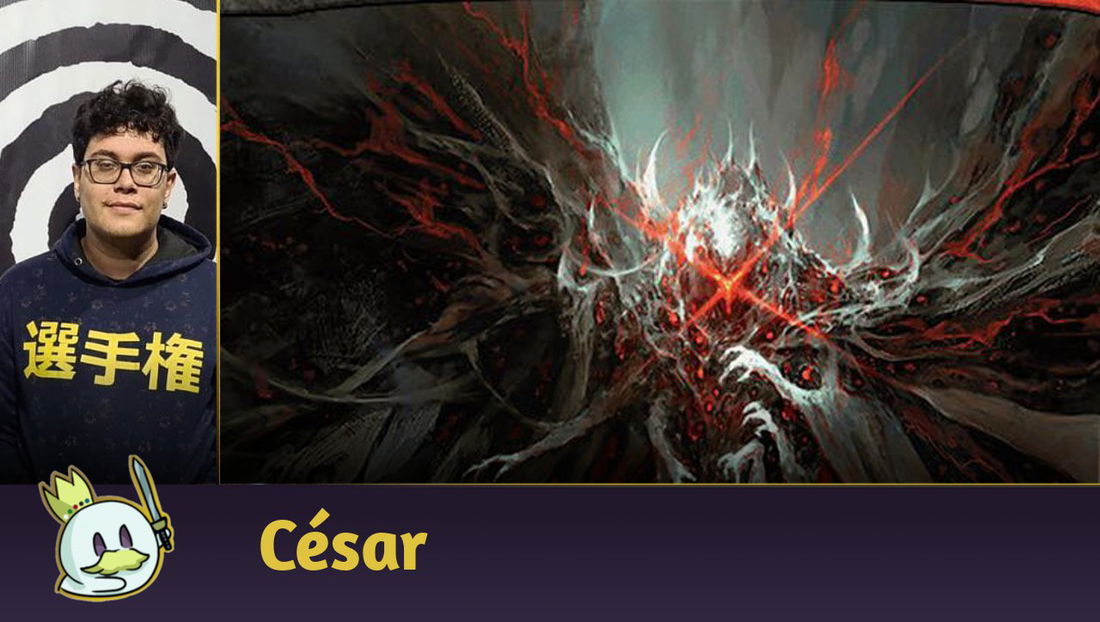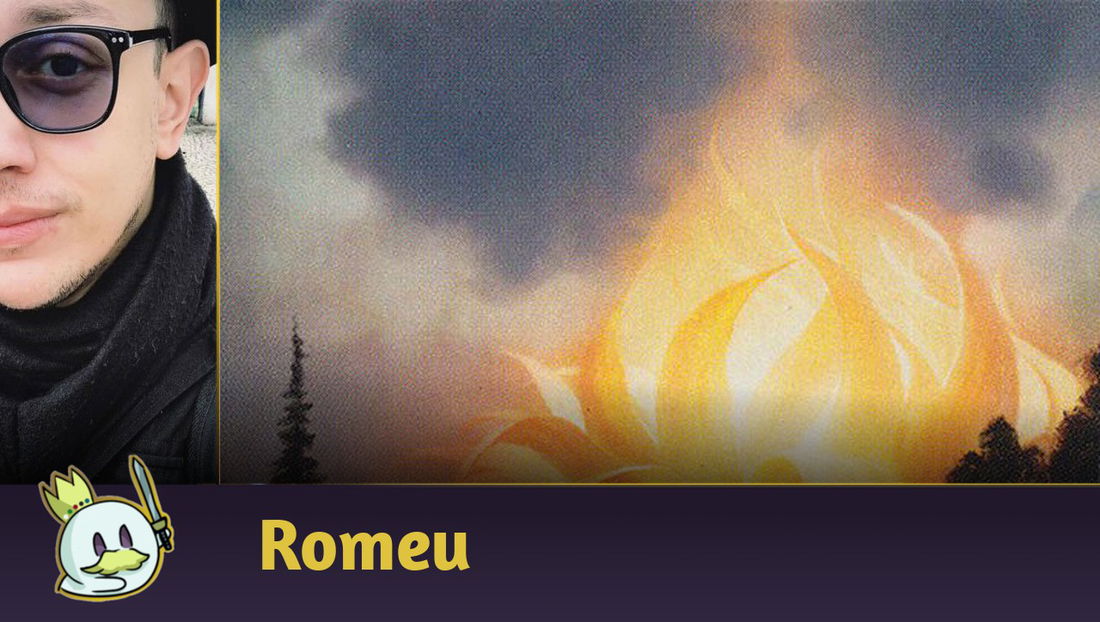NOTE: This article was originally written on September 27th. The last parts have been updated and written considering the recent change in management of the Commander format to Wizards of the Coast.
I don't write about Commander. Although it is the most popular format in Magic: The Gathering, it doesn't appeal to me when it comes to content creation - this is not a personal dislike, much less a minimization of the format. On the contrary: Commander is, technically, one of the best possible ways to play MTG because it bypasses all the rules and problems pre-established by the game to be its own mode - the Metagame doesn't matter, the acquisition cost matters less, the toxicity that a tournament naturally brings to players becomes less frequent.
Ad
In theory, Commander is a place where people play with whoever they want, however they want, spending whatever they want, and with whatever rules they prefer. It is sanctioned and has its own banned list and set of tournament organizations for those with a more competitive bent, but the very nature of the format's creation and management is geared towards it being a place for everyone. It is the most played and most famous format in Magic for this reason.
This popularity, of course, comes with consequences: creating and playing a format made for everyone is planting the seeds of what will one day be a large tree with a structure too complex to know where to prune each branch without damaging the balance of the surrounding ecosystem. Over time, there will be more branches, the roots will come out of the ground, and before you know it, the tree might be slowly growing around your house - and you no longer have the resources to stop it. Even if you set your tree on fire, it will take away your house and everything you built on it.
This analogy in Magic is a little more convoluted: every Commander player has their house and tree. Everyone prunes their tree in the way they see fit for their needs, and consequently, they find some neighbors in the neighborhood with whom they have harmonious conversations because their ecosystem is in line with theirs, or they even create relationships between their trees that help both trees grow and become more beautiful - there is an agreement between them about how their neighborhood should be and how the trees should be cared for.
And we are talking about the most complex board game of all time: in addition to having the rules factors, it has almost 30 thousand different cards (it should reach that number by late 2025) and hundreds of thousands of possibilities when it comes to building decks and making interactions between these cards - its aspect of unpredictability is almost endless.
Ad
When we play board games, there are also the two types of people that we find in Commander: those who play to win and those who play to have fun - the difference is that, in this case, the parity of weapons and resources on the table is equal for everyone, whereas a TCG requires constant investment to keep up with your friends and the other tables.

But Magic was born from competitive play. For years, its culture was geared toward this audience: “Play the Game, See the World” was the reason for many to dedicate themselves to the TCG. When Commander started to become popular, it was clear that it was affected by this more competitive vein at some point - after all, no one plays to lose, even “for fun”. And any competitive game bets on that.
As the years went by and the format's staples became more expensive and more coveted, the investment for those who wanted the most optimized version possible only increased. - Now they face the consequences of the snake egg that was hatched back then: seeing their expensive staples disappear because Commander was not - according to the latest RC bans - philosophically designed to compete, unlike the Magic they know and have known for decades.
With this imminent threat of their staples and Reserved List cards no longer being a safe investment, this same audience tries to find solutions or starts getting rid of their decks and collections to recover the lost investment. They have lost confidence in Commander, they do not trust RC's decisions and consider that, in the end, it is useless to dedicate themselves to the format.
Isn't it time to separate things?
And if this is the case, isn't it time to admit that Commander's ideals do not correspond to those of competitive tables and, consequently, that it should be a separate modality with its own regulations and banlist? Wouldn't it be time for a group of players to take advantage of the famous Rule 0 to create their own unified cEDH management between the various communities, with their own banned list? Call the format whatever you want - Leviathan and Duel Commander essentially exist with this proposal - just do yourself a favor and accept that the conversation between these two formats no longer exists and create your own regulations for the more competitive side.
Once that's done, a competitive committee can do whatever they see fit. Unbanning Dockside Extortionist, Jeweled Lotus and Mana Crypt, take advantage of and unban other cards from the current Commander list that doesn't make sense for the format's speed and power level, ban pieces that create a huge disparity in matches (and it would be hilarious if they were positive mana rocks), among other changes to make cEDH what its players - a smaller portion of Commander's overall scope - and a group of competent and influential people in its community consider ideal.
Another benefit of this separation between the two would be for the players: tables where there is a disagreement of interests or where someone ends up angry because they closed a combo in the first three turns would be less frequent. More common would be the use of tables in local stores that could, for example, segment separate tournaments in their systems to serve both audiences so that every player understands the difference between one and the other.
Ad
It would be better for stores if they could, for example, think of a competition structure for the cEDH audience with an increased prize pool while considering other modalities that encourage lighter and more casual Commander games, with raffles and gifts instead of credit or booster pack prizes - a practice already adopted in many stores.
Things will be better both for the market to understand which products and cards each type of player wants, and for content creators to focus on what they really want to cover without needing disclaimers and other details that Commander currently requires when we discuss a deck or strategy.
Even Commander itself benefits from this change as a format: it is about Gathering. About getting your friends together and enjoying your favorite card game in a way that other formats don't allow due to the competitive factor that permeates them. A safe and ideally less harmful place for those who just want to have fun after a tiring week.
Everyone wins if we separate Commander from cEDH. But do we have people willing to take on this role? Would it be possible to have permission from Wizards - now that they make the format decisions - to “create” this mode where competitive players can play their own version of Commander?
The RC is gone, what happens now?
Last Monday, one day before this article was scheduled to be published, Wizards announced that it will take over Commander management following the controversies involving threats to the format’s committee members.
I am a strong advocate that every sanctioned Magic format should have its own committee similar to the Pauper Format Panel: a group of competent people analyzing the data of a format to make more assertive decisions about bans and unbans while maintaining clear and objective communication with its community as things develop and unfold.
Let's be clear that PFP doesn't please the entire community of the format it encompasses, but it's not the duty of any committee to please all players - if there was a mistake in RC that caused its social death, it was trying to please too much of a specific part of its community and making arbitrary decisions without external advice from the advisory group they built.

But what PFP has beyond its other formats is a level of autonomy and communication. They openly discuss the Metagame on their networks, talk to the public and, sometimes, consult them on some decisions - which I consider a mistake because banning decisions in competitive formats should not be made based on what the players want because, as with Commander, everyone has a different vision of the ideal format - and they are able to make changes as needed. They banned Cranial Ram before MH3 came out, made choices in their first ban announcement that caused negative commotion but were largely healthy for the format, and they can establish a bond between the community and Wizards that is only possible because they exist as a link.
RC was different in that it made decisions in a more authoritative manner. They had an ideal vision of the format and put it into practice through rare bans, often worrying about other details. Their last announcement was so full of controversy that the trust of their audience no longer existed and no matter how much they tried to fix things, they could not. In this sense, passing Commander decisions to Wizards is a good decision.
Ad
However, Wizards is a company, a subsidiary of Hasbro. Magic is a product to be sold, and many decisions are known to be made - or not - considering the company's business. There is now a threshold of how long a card can be acceptable even when it is breaking formats and, in the case of Commander, this period tends to increase because its nature differs from competitive.
Through the WeeklyMTG, the company made a gesture about how it intends to maintain an advisory group to make decisions, with a number between 10 and 20 people - it is a good first step because it removes, for example, the concerns that the next decisions will be arbitrary and purely commercial and the idea that the direction of the format will be at the mercy of banning or unbanning cards based on what is most convenient for the game's products.
With this change, however, a new ).push({});








— Comentarios0
Se el primero en comentar